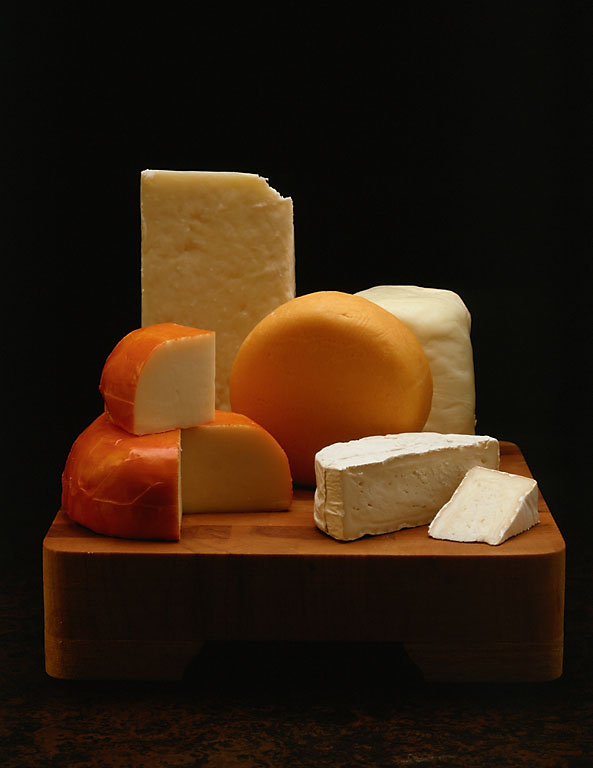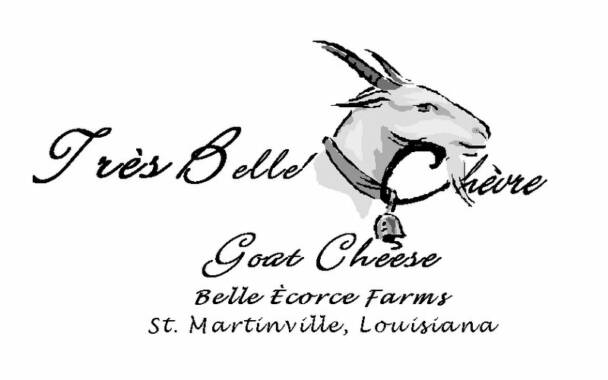
Q Where is St. Martinville?
Q Are you open at the farm?
Q How many goats do you have?
We currently have about 30 or so mature milkers, a few younger first time milkers,some yearling does, a few retired ladies, several Lamancha bucks 2 Nubian bucks and various bucklings. Our registered dairy herd consists of Lamanchas, Nubians, an old Sannan doe a various crosses of these breeds. We chose these breeds because of their adaptability to our climate, their docile nature. The high quality, flavorful milk these girls produce is excellent for cheese-making. We occasionally have goats for sale. bucks, bucklings, does & doelings.
Q Do you use any artificial hormones in your products?
Q Where can we purchase your goat cheese?
Q What types of goat cheese do you sell?
Goat milk can be used as any other milk with any kind of cheese making techniques… The most common and best known is the lactic process. This product is creamy and can be eaten fresh or soft ripened. Belle Ècorce Farm offers natural and flavored fresh chèvre as well as soft ripened lactic chèvre.
Goat cheese can also be made from a quick-set, non lactic process. This method require aging from a few weeks to a few months depending on the product
Q Is goat cheese a reduced fat cheese?
Q What are the health benefits of goat cheese?
Per Oz. Goat Cheese
Goat Cheese  Cow’s Cream Cheese
Cow’s Cream Cheese
Calories 80
80 100
100
Proteins (grams) 5
5 5
5
Fat (grams) 6
6 10
10
Cholesterol (mg)  20
20 30
30
Q Is animal rennet used in this cheese?
Q What is the shelf life for goat cheese?
Chèvre is a fresh cheese and should be eaten within a couple of weeks for maximum enjoyment and taste. Chèvre can be frozen and enjoyed later. Chèvre in olive oil or pecan oil will keep longer -- the oil tends to preserve it. Goat cheese will continue to age in the refrigerator and the taste will become stronger and more complex. Feta will keep a long time stored in its brine or dried and marinated in oil.
Q Does goat cheese need to be refrigerated?
Q Are your cheeses pasteurized?
Any of our cheeses that are aged less than 60 days are from pasteurized milk, as required by the state of Louisiana. All our chèvre, bloomy-rind cheeses and feta are from pasteurized milk. Our aged cheeses are from raw milk, and aged over 60 days.
Q Why does some goat milk and goat cheeses have a stronger flavor than others?
Goats produce less milk than cows and typically, goat herds are smaller than cow herds. Therefore, many  producers pick up the milk at the farm every 5 to 7 days. Acidity develops in the milk and is often found in the finished product.
producers pick up the milk at the farm every 5 to 7 days. Acidity develops in the milk and is often found in the finished product.
Belle Ècorce Farm pasteurizes and makes cheese every 2- 3 days. We are very strict on milk quality and therefore offer a very mild and consistent fresh and aged goat cheese. Some of our aged goat cheeses can be quite sharp due to the controlled ripening process but not because of uncontrolled milk quality.
According to Juliet Harbutt in "The World Encyclopedia of Cheese", "Goat milk is delicate, if handled improperly, without care, the microscopic globules of fat suspended in the milk will burst, releasing their contents. This is what can impart a bitter, nasty taste to goat milk. However if the milk is handled with care these same fat globules will gradually break down and will contribute to the delicious, herbaceous taste of he cheese. A good goats milk cheese tastes as though the milk has absorbed the oils and aromas of tarragon, thyme, or marjoram, set against a background of dry crisp white wine."
Q How much milk does milk does a cow give compared to a goat? Sheep?
Q What is the ratio of milk to the weight of cheese produced?
Très Belle Chèvre
Goat Dairy & Fromagerie
FREQUENTLY ASKED QUESTIONS




Do you have a cheese or dairy question ?
Please include your name & email if you would like me to email you.